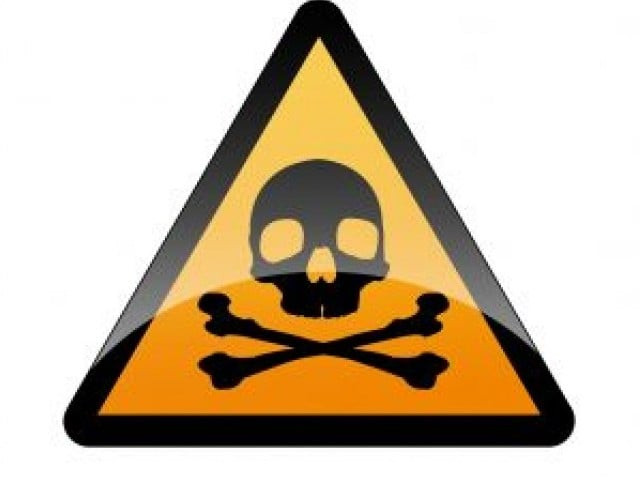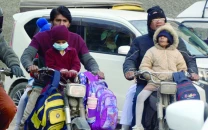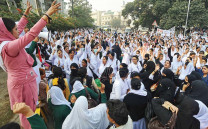City's suicidal given new lease on life by National Poison Control Centre
Patients at the centre have a 95% survival rate, says JPMC head

PHOTO: EXPRESS
Poison is one of the deadliest and most common tools used by people attempting to commit suicide. It also leaves a huge impact on the family members of the victims, as patients who survive suffer major post-poison intake reactions during recovery.
Jinnah Postgraduate Medical Centre's (JPMC) medicine ward six plays host to a centre, the National Poison Control Centre, which deals with the victims of poison ingestion. It was established in 1989 with the help of the World Health Organisation. Patients at the centre have either intentionally ingested the poison or are victims of snake or venomous insect bites or stings.
The centre deals with patients suffering from poisoning and is the only public sector facility in Karachi that provides snake and scorpion anti-venoms to patients who suffered snake bites or insect stings. The other facilities that provide anti-venoms are the Aga Khan Hospital and Liaquat National Hospital.
Dr Seemin Jamali, head of the JPMC and incharge of the hospital's casualty and emergency ward, remarked that the hospital provides very expensive anti-venoms to its patients free-of-cost.
All poisons are not fatal but victims bitten or stung by snakes or scorpions, as well as patients who have ingested poison, should be rushed to the hospital as soon as possible. Their chance of recovery depends on how soon they get to the hospital.
However, she said patients at the centre have a survival ratio of over 95%.
According to the centre's registrar, Dr Muhammad Inam, due to consumption of large quantities of poison, some patients treated at the facility exhibit signs of psychosis - a condition characterised by an impaired relationship of thoughts and emotions with reality.
He added that between 4,000 and 4,500 patients are treated at the facility every year, of which more than 60% are women who have tried to commit suicide by poisoning themselves with pesticides, rodent and insect killers, sedatives and domestic cleaning liquids. Males that consume toxic liquor are also treated at the facility.
"The majority of patients - up to 85% - have consumed poisonous compounds intentionally. The remaining cases are of accidental poisonings or stings and bites," Dr Inam told The Express Tribune.
In case of poison ingestion, the patients' stomachs are flushed and they are then treated with the use of specific antidotes and supportive treatment with intravenous fluids and antibiotics. Meanwhile, snake and scorpion bite victims are prescribed snake and scorpion anti-venoms, which are usually injected in the body of victims along with normal saline, as the venom can cause bleeding, kidney failure, severe allergic reactions or breathing problems.
Pregnant woman, daughter poisoned
Red blood cells, platelets, plasma or whole blood is given to the victims at the centre or they are shifted to its intensive care unit and put on the ventilator in case of respiratory distress. Snake bite victims usually come from the outskirts of the city, such as Malir, Maripur and even areas as far as Thatta, Badin and Balochistan.
The patients usually stay between three and four days at the facility and are then discharged. The majority of poisoning patients come from Orangi, Korangi and Landhi.


















COMMENTS
Comments are moderated and generally will be posted if they are on-topic and not abusive.
For more information, please see our Comments FAQ